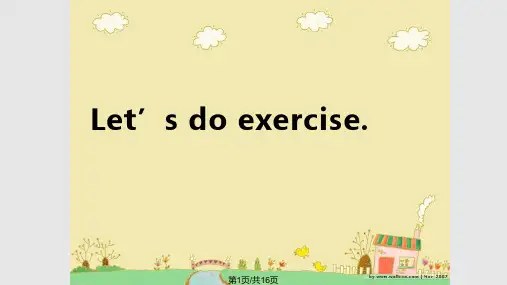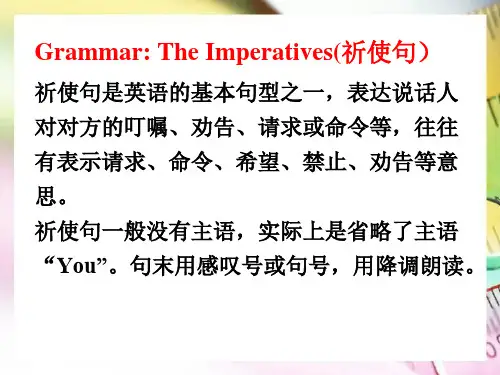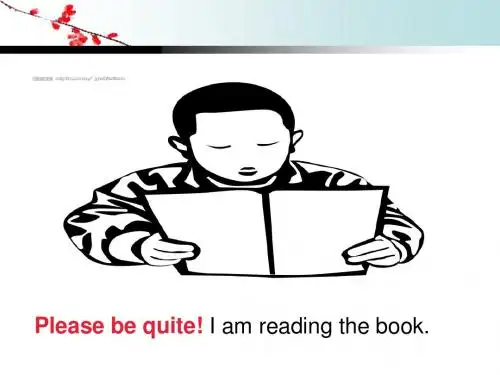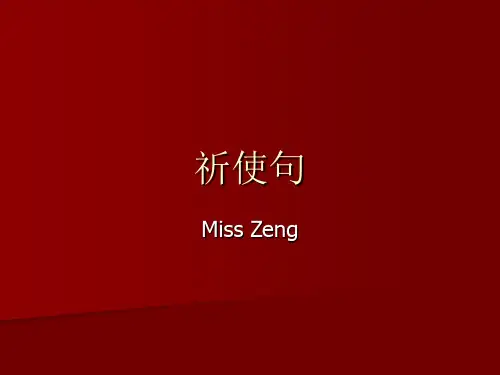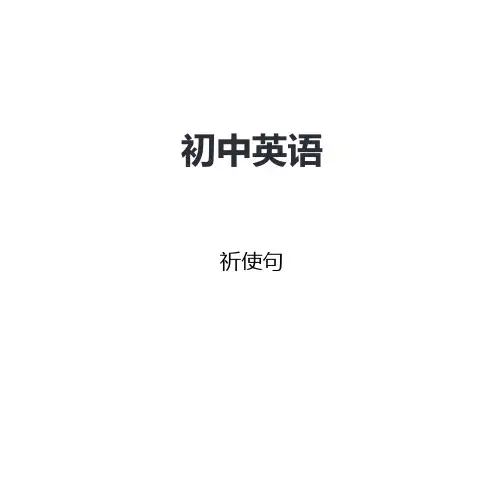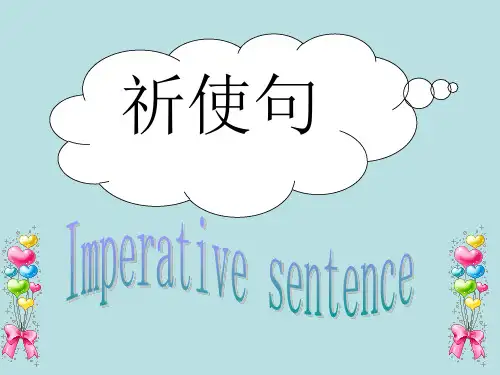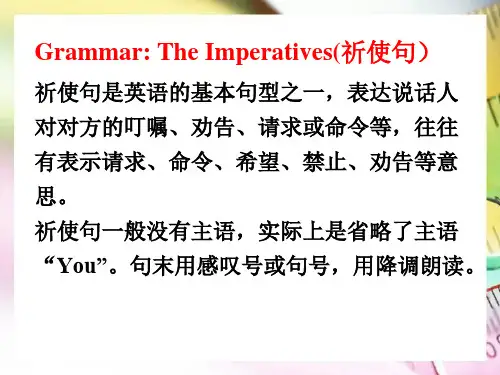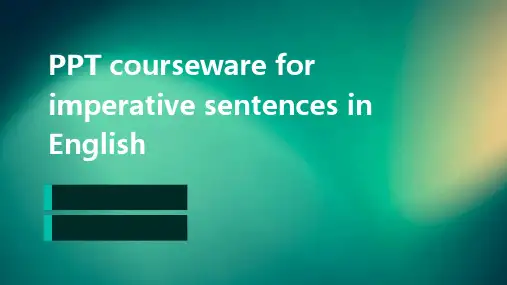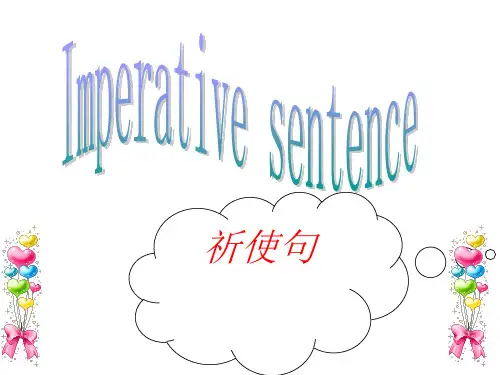6. We try our best to stop accidents from _h_a_p_p_e_n_i_n_g_ (发生)at school.
7. Santa Claus has nine _r_e_in_d_e_e_r_ (驯鹿)to pull his sleigh. The _n_in_t_h_ (九) is called Rudolph, a red-nosed reindeer.
Grammar: The Imperatives(祈使句)
祈使句是英语的基本句型之一,表达说话人 对对方的叮嘱、劝告、请求或命令等,往往 有表示请求、命令、希望、禁止、劝告等意 思。 祈使句一般没有主语,实际上是省略了主语 “You”。句末用感叹号或句号,用降调朗读。
祈使句
肯定式:Come here, please. Be patient, please. Let’s go by bus.
祈使句的反意疑问句
反意问句 Open the door, will you? Let’s go by bus, shall we? Let us leave at once, will you?
一个重要句型
祈使句, and/then 主can/will do… 祈使句, or 主语 cannot/ won’t do… Examples: 1) Think hard, and you will come up with an
祈使句转换为间接引语 1)“Come here, Tom!” John said.
John told Tom to go there. 2) “ Don’t pick flowers,” he said to us.
He told us not to pick flowers.
